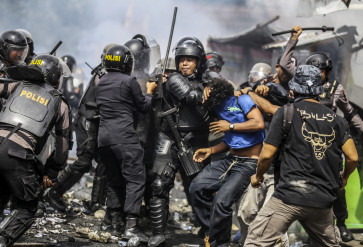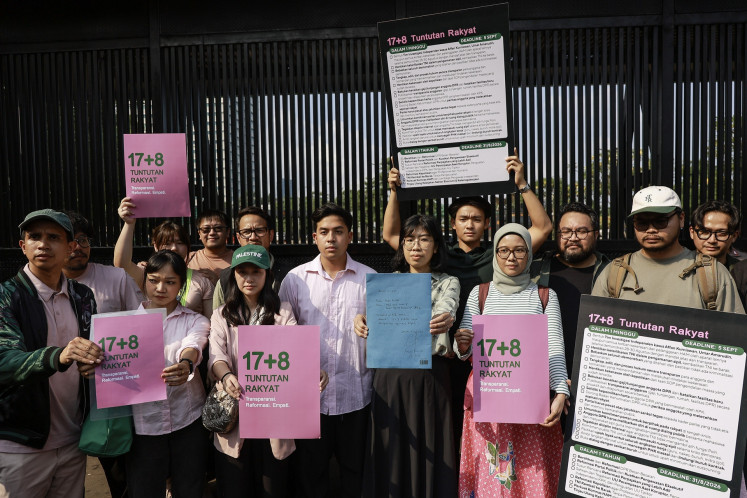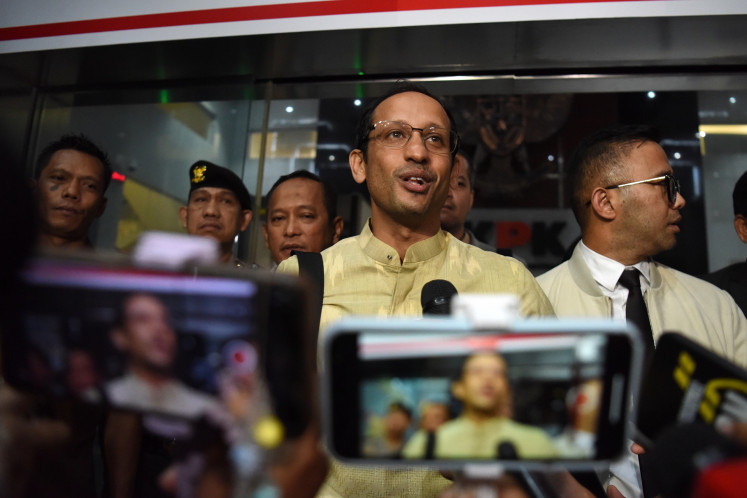Popular Reads
Top Results
Can't find what you're looking for?
View all search resultsPopular Reads
Top Results
Can't find what you're looking for?
View all search resultsFace masks a must in public places, says Indonesia’s COVID-19 rapid-response team
"The public can wear cloth masks, or masks made from other materials, as long as they can prevent the spread of saliva droplets when speaking," said Indonesia's COVID-19 rapid response task force head, Doni Monardo.
Change text size
Gift Premium Articles
to Anyone
To help flatten the COVID-19 curve, the government is now urging people to wear face masks whenever they are out in public.
The new recommendation is an update from the previous guidelines and is in line with the World Health Organization’s (WHO) latest recommendation. Previously, Indonesia complied with the WHO’s recommendations that face masks only be worn by medical professionals and sick people in order to prevent a supply shortage.
"The President has asked us to make guidelines on face masks in accordance with the World Health Organization's advice,” head of Indonesia’s COVID-19 rapid response task force, Doni Monardo, told an online press conference on Monday.
“Previously, the WHO advised that only sick people should wear face masks but now it recommends that everyone wear face masks, especially in public places," he added.
However, Doni explained that only healthcare providers and other medical professionals working on the front line needed to wear medical-grade masks, such as surgical masks and N95 masks.
"The public can wear cloth masks, or masks made from other materials, as long as they can prevent the spread of saliva droplets when speaking," he added.
President Joko “Jokowi” Widodo said the government was preparing face masks for future public distribution.
"I've ordered [my administration] to prepare for the distribution of face masks to the public because we’re planning to require everyone who leaves their homes to wear a mask, in accordance with the WHO recommendations,” he said on Monday.
Doni said that medical-grade masks would still only be distributed to healthcare providers.
"For the public, the President has asked regional leaders to ramp up production of cloth masks through small and medium enterprises. This will help to fulfill [the regions’] need for masks, so they won’t depend on the central government," Doni said.
According to livescience.com, asymptomatic people can still spread COVID-19, with the United States' Centers for Disease Control and Prevention (CDC) finding that up to 25 percent of people who contract the virus may not show symptoms.
A new small study also found that COVID-19 may be most infectious when symptoms are mildest. This new evidence indicates the virus can spread between people who interact in close proximity such as when speaking and when someone coughs or sneezes.










